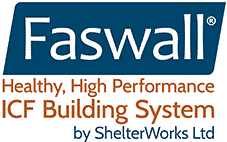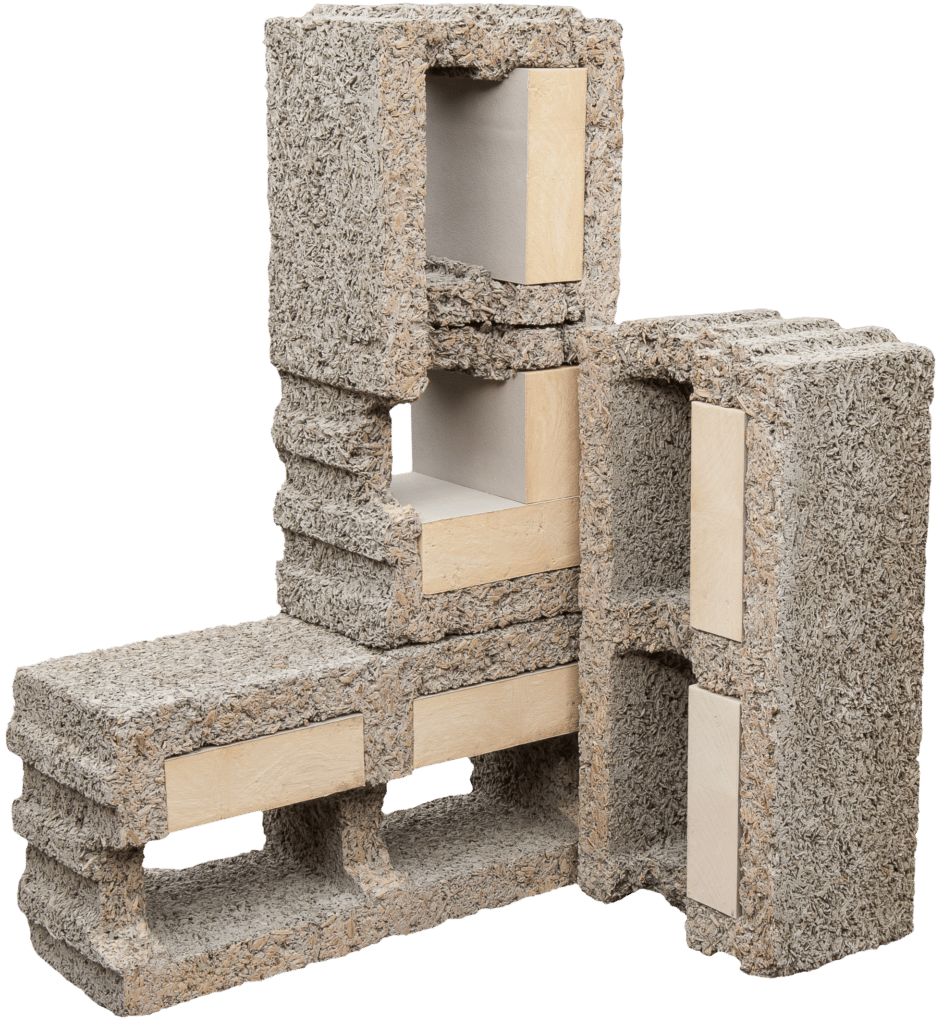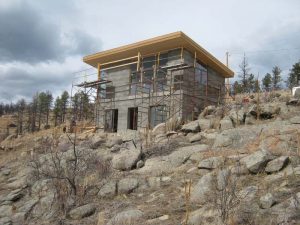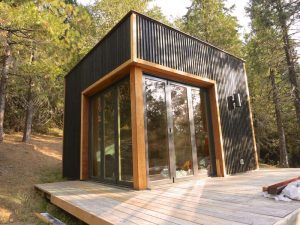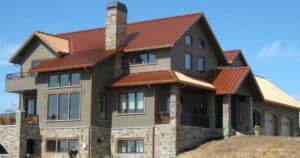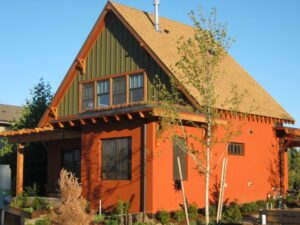ICF and ICCF are common abbreviations you’ll see when you start researching non-wood building materials. ICF stands for insulating concrete forms, and ICCF stands for insulating composite concrete forms. These materials are similar as the names suggest. But there are some important and meaningful key differences for those who care about sustainable building and environmental impact..
Composite ICCFs are the most environmentally friendly wall form block. Composite ICFs (ICCF) use recycled or reclaimed materials to build the outer structure of the wall form block. This reduces waste streams. There are six manufacturers of ICCFs and Faswall is one of them. Faswall uses specially mineralized recycled wood from pallets and other wood sources, combined with a fraction of cement. Other composite block manufacturers use reclaimed plastics such as styrofoam that are usually destined for the landfill.
Traditional ICFs are built with a lightweight outer “sandwich” of expanded polystyrene foam, or EPS. The concrete is poured into this for strength and insulation. EPS foams are sometimes confused with styrofoam in construction and household use, which is actually a different product called XPS foam. Both forms of styrofoam are well-known for their lack of recycling streams and their environmental persistence (more than 500 years in landfill; more here). EPS foams are marginally better than XPS foams, but are still made with oil products. Those who are concerned about sustainable building using natural building materials tend to recoil at this, because the blocks contain a high percentage of virgin plastics. ICCF products with more sustainable materials are growing in popularity.
Advantages of Faswall ICCF
Faswall is made with 100% recycled and organic materials, reducing carbon and environmental footprint. Non-toxic at the core, unlike foam ICFs and other ICCFs, Faswall enables you to build a safer, sustainable home.
You’ll enjoy lower energy costs over the lifetime of your home due to ICCF’s superior thermal performance. All of the ICCFs are similar in this regard, but one of Faswall’s advantages is in the fact that stacking and connecting Faswall is so easy. With Faswall, all wall forms are interchangeable dimensionally. This gives the installer options. Faswall blocks stack easily, with no mortar, at a weight of less than 30 pounds per block. DIY homebuilders all over the USA love how easy it is to build walls without specialized equipment.
Faswall creates walls that breathe, for a healthier environment. Unlike ICFs, which require a vapor barrier, Faswall ICCFs are vapor permeable and do not support the growth of mold. The non-toxic features continue through to wall finishings. Unlike slick ICFs, ICCFs have a rough-textured, cementitious surface that allows the builder to apply interior or exterior stuccos and interior plasters or drywall right to the surface of the block itself.
Disadvantages of ICFs
The foam on the outside of traditional ICF blocks is fragile. Without forms and bracing, ICF walls can be damaged by wind. ICCF blocks are heavier and stronger, so they require less bracing — this by itself can be a cost saving factor on a jobsite.
If a traditional foam ICF is not covered up and protected soon after being erected, the UV radiation can degrade it. In contrast, the mineralized outer layer of most ICCFs can be exposed for years, if necessary. ICFs must usually be covered with lathe, chicken wire, or furring in order to be finished.
Disadvantages of ICCFs
It’s truly a stretch to come up with disadvantages of ICCFs. But one possible deterrent would be due to the fact that some models of ICCF are heavier. Although moderate weight can be a benefit on the jobsite, it can increase shipping costs if the nearest supplier is a far distance from you.
Disadvantages of both types of wall construction blocks are that once they are in place and filled with concrete (required for structural stability), they are difficult to move or change. This makes remodeling trickier — be sure of your home plan before you start to pour the concrete! Another disadvantage is due to the thickness of the block. Because the blocks take up more space than wooden or metal stick framing, this depth needs to be designed into the building plan, as itc an impact the interior floor space. Again though, if you think about the benefits that the ICCF block thickness provides — strength, insulating factor, quietness, storm-resistance, fire-resistance, insect-resistance, etc. — these disadvantages really pale by comparison.
When it comes to ICCFs vs. ICFs and why it matters, the answers are clear. Both material choices have similar advantages when it comes to durability, insulating value, and energy efficiency, but only ICCF can be considered to be more sustainable. And only one, Faswall ICCF, is non-toxic and made with 100% natural materials, and is also less labor intensive and more do-it-yourself friendly. Find out more today by getting in touch with us at Faswall.
